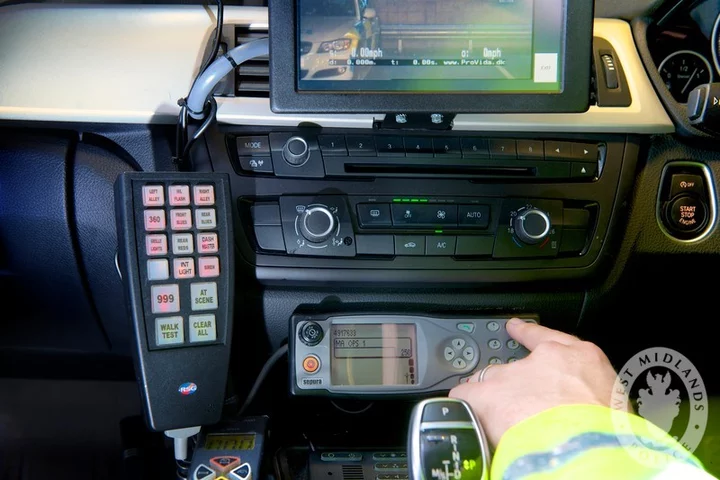Many law enforcement agencies now employ Automated Number Plate Recognition (ANPR) or Automated License Plate Reader (ALPR) software. | Creative Commons (CC BY-SA 2.0)
###
Last week, a trio of civil liberties groups sent letters to 71 California police agencies, including the Humboldt County Sheriff’s Office, demanding they immediately stop sharing data from automated license plate readers with law enforcement agencies in other states because, the groups say, “it violates California law and could enable prosecution of abortion seekers and providers elsewhere.”
Automated license plate readers (ALPR) use optical character recognition to “read” license plates, collecting and storing information such as dates, times and a driver’s locations. Law enforcement agencies can also run the acquired plate numbers through various law enforcement databases and alert other agencies when they find a vehicle of interest.
The three civil liberties groups — Electronic Frontier Foundation (EFF), the American Civil Liberties Union of Northern California (ACLU NorCal) and the American Civil Liberties Union of Southern California (ACLU SoCal) — say that a months-long EFF investigation revealed that many California police departments share records of detailed driving profiles out-of-state agencies.
“ALPRs invade people’s privacy and violate the rights of entire communities, as they often are deployed in poor and historically overpoliced areas regardless of crime rates,” EFF Staff Attorney Jennifer Pinsof said in a press release. “Sharing ALPR data with law enforcement in states that criminalize abortion undermines California’s extensive efforts to protect reproductive health privacy.”
The letters sent to law enforcement agencies go into more detail:
Particularly since the Supreme Court’s decision in Dobbs v. Jackson Women’s Health Organization, which overturned Roe v. Wade, ALPR technology and the information it collects is vulnerable to exploitation against people seeking, providing, and facilitating access to abortion. Law enforcement officers in anti-abortion jurisdictions who receive the locations of drivers collected by California-based ALPRs may seek to use that information to monitor abortion clinics and the vehicles seen around them and closely track the movements of abortion seekers and providers. This threatens even those obtaining or providing abortions in California, since several anti-abortion states plan to criminalize and prosecute those who seek or assist in out-of-state abortions.
You can read a sample of the letters issued by clicking here.
According to these civil rights groups, the 71 California agencies that they sent letters to — again, including the HCSO — have shared ALPR data with law enforcement agencies across the country, including ones in states with abortion restrictions, such as Alabama, Idaho, Mississippi, Oklahoma, Tennessee and Texas.
The groups say this practice undermines the state’s efforts to protect reproductive health privacy, specifically, a 2022 law (AB 1242) prohibiting state and local agencies from providing abortion-related information to out-of-state agencies.
Asked to respond to the demand letter, Humboldt County Sheriff’s Office Public Information Specialist Samantha Karges emailed a statement, saying that while only one of the agency’s patrol vehicles is currently equipped with ALPR equipment and technology, it’s an important tool.
“ALPR assists law enforcement agencies in working together to solve crime, because as we know, crime is not confined within jurisdictional boundaries,” Karges’s statement says. “ALPR allows us to partner with out-of-county law enforcement agencies to combat criminal activity, creating a safer community for all.”
While the agency’s use of this technology is limited thus far, Karges says it may soon expand.
“HCSO conducted a test and evaluation of the ALPR equipment over the last year, with three deputies trained and authorized to utilize the technology,” she writes in the statement. “The testing and evaluation ended at the beginning of this year and is being reviewed by Administrative staff for improvements and next steps prior to full implementation.”
She adds that, in compliance with the California Values Act, this data is not shared with federal law enforcement agencies tasked with immigration enforcement.
The civil liberties groups have given law enforcement agencies a deadline of June 15 to comply and respond.

CLICK TO MANAGE